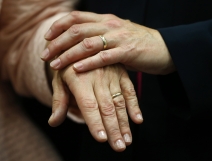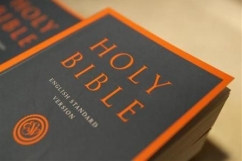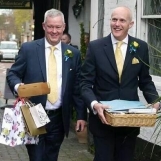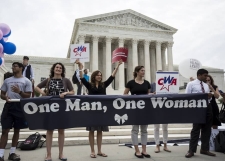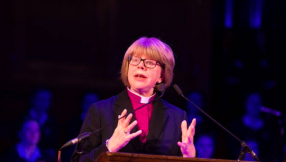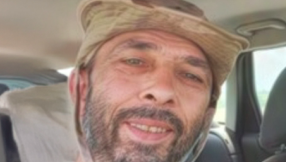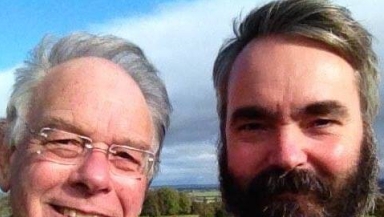
The Church of England has been accused of "institutional homophobia" over a decision to ban a gay clergyman from taking services after he married his partner.
Jeremy Davies, formerly a canon precentor at Salisbury Cathedral, married his partner of almost 30 years, Simon McEnery, in 2014. The two entered into a civil partnership a decade ago, and married last year after it became legal to do so.
Davies, who has been a priest for more than four decades, officially retired from his position in Salisbury in 2011, but was asked to continue taking services in the neighbouring diocese at Winchester Cathedral. He then applied to officiate as a priest in Winchester diocese earlier this year, but was rejected by the bishop of Winchester, Timothy Dakin.
"Due to the Church of England's position on same sex marriage, as set out in the House of Bishops' Pastoral Guidance, canon Jeremy Davies has been informed that his application has been unsuccessful," a spokesperson for the diocese of Winchester said.
The pastoral guidance was issued in February last year. It forbids bishops, clergy and laity in the Church of England from entering into same-sex marriages, stating that although opinions vary, "It would not be appropriate conduct for someone in holy orders to enter into a same-sex marriage, given the need for clergy to model the Church's teaching in their lives".
"We are all in agreement that the Christian understanding and doctrine of marriage as a lifelong union between one man and one woman remains unchanged," it adds.
According to the Guardian, Davies said the response from Winchester diocese "was not entirely unexpected", but the Church must establish a "coherent theological position on human relationships and sexuality".
McEnery, meanwhile, accused the Church of England of "institutional homophobia" on his Facebook page, and repeated his comments to the Guardian.
"I dislike the idea of the church being allowed to discriminate against gay people when it is increasingly outlawed in civil life," he said.
"The C of E is the established church, a sort of state organisation, but it has legitimate institutional homophobia at its heart."
Davies' case follows that of Canon Jeremy Pemberton, who recently lost his case claiming he was discriminated against by his bishop after having his permission to officiate as a priest withdrawn as a result of marrying his partner in a civil ceremony.
Andrew Foreshew-Cain married his partner, Stephen, last June, but has continued in his position as vicar in West Hampstead despite being reprimanded. In October, he was elected to serve on the Church of England's General Synod, and told Christian Today that the Church needed to "wake up" to the issue of homosexuality.
"Unless the Church of England wakes up to the way it is being perceived, as a result of its rhetoric around gay and lesbian people, huge numbers of people are going to be alienated," he said.
"The rhetoric around human sexuality is hugely damaging for the Church. We need to put it behind us and move on."










